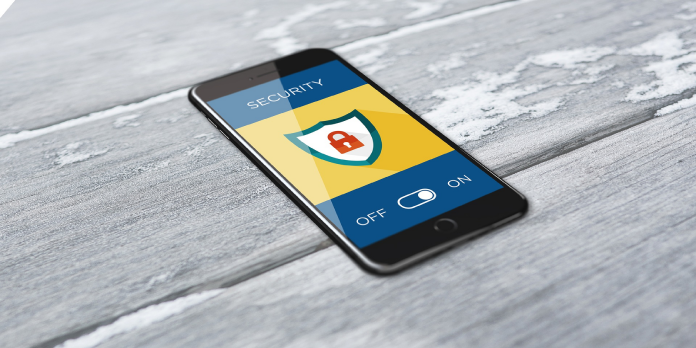Here we can see, “Can You Keep Vpn on All the Time? How to Always Keep Vpn on?”
- It’s common knowledge that a VPN may help with several privacy and security concerns, but can you keep your VPN on all the time?
- To be honest, there’s practically nothing wrong with constantly connecting to your VPN. However, you may notice a temporary decrease in Internet speed.
It’s common knowledge that a VPN may help with several privacy and security concerns, but can you keep your VPN on all the time? Even casual users will appreciate how a VPN may save them time and money.
Is your Internet service provider monitoring or restricting your bandwidth? VPN can help with that. Want to get around censorship or regional limitations? You can rely on a VPN to get around them.
On the other hand, some users believe that VPN use should be more limited. As a result, they only use VPNs when absolutely necessary, then switch them off when their online activities aren’t worth hiding from authorities.
If you’re wondering if you can keep your VPN on all the time, the answer is yes. VPNs include a variety of configuration settings that allow you to start the VPN and automatically connect to the best server.
If no VPN is identified, there are even kill switches that turn off your default Internet connection. Yes, there are numerous techniques to ensure that your VPN connection remains active at all times.
The actual question is whether you should keep your VPN turned on all the time. If you want to learn more, keep reading.
Should you keep your VPN on all the time?
1. If you frequently use public WiFi
Using public WiFi may be both enjoyable and dangerous. Many people ignore the need to be safe in this type of atmosphere since they have access to free Internet.
To any malicious user, public WiFi networks function as honeypots. You’re almost painting a large target on your back the instant you go in without any form of protection.
Furthermore, the excitement of surfing the Internet without paying for free may cause you to overlook the importance of utilizing security software.
As a result, even if you have a VPN, you can forget to switch it on before connecting.
That wouldn’t happen if your VPN was already running and waiting for you to connect to the public WiFi so it could secure your connection and protect your privacy.
2. Does your ISP throttle your bandwidth?
Your ISP may be restricting your bandwidth if you remember paying for a lightning-quick Internet package and your connection isn’t quite as fast as advertised.
This means that, even though your connection should be capable of 1000 MB/s, your ISP may cap it at 5 MB/s.
Your ISP might do this to save money or avoid network congestion rather than fix the routing or manage subnets appropriately.
The majority of the time, bandwidth throttling isn’t random, and you should be able to detect it at any moment. It’s also possible that your bandwidth will be capped solely during peak traffic hours.
Regardless, it is still unjust and inconvenient when it occurs. If you want to forget about it, connect to a fast VPN server, leave your VPN on at all times, and forget about it.
3. Are you downloading torrents?
It’s common known that downloading torrents can get you on many people’s bad lists. And not even the good ones. Torrenting facilitates the distribution of pirated content on numerous websites.
You’d be better off downloading torrents while using a VPN for whatever reason. Even if your download is legal, your ISP may actively monitor torrenting activity and flagging you.
As previously stated, the rush of downloading something quickly can blindside you and cause you to overlook security. As a result, leaving your VPN on all the time could save you a lot of trouble.
We also recommend that you maintain the kill switch option turned on at all times.
If your VPN connection fails, your device will most likely fall back to a previously known-to-work, non-VPN-secured connection.
If no VPN connection is identified, a kill switch will prevent this by switching off your Internet access.
4. Frequently making online payments
Wrongdoers can intercept your payment information if the stars align incorrectly, and your money might be gone before you realize it.
Using a VPN will not always prevent this from happening, but it will make it immensely more difficult for criminals.
If you’re a busy person who doesn’t like to overcomplicate things and likes to keep things tidy, you should always have your VPN on.
It will spare you the trouble of activating it manually every time you need to perform a transaction.
5. Wanting to unblock geo-restricted or censored content?
If you believe that internet censorship and geo-restrictions are unjust, you’ve probably discovered that a VPN can easily get around them. Consider Netflix in the United States or the United Kingdom.
You can’t access either of them unless you’re physically in the right region. On the other hand, a reliable VPN can quickly help you evade these restrictions.
In this instance, it’s safe to leave your VPN on all the time. It can protect you from hackers, your ISP, and any data-seizing government agencies and allow you to view prohibited information.
6. Worried about your online privacy?
This should be at the top of the list; however as we already stated, most people only use VPN on occasion. As a result, few people are concerned about their internet privacy, which should be their first priority.
But, to get back on topic, if you’re concerned about your online privacy, you should always keep your VPN turned on. This makes it far more difficult for anyone to track your internet activities.
Sure, using a VPN can slow down your Internet speed a little, but we think it’s a little price to pay for reclaiming what is rightfully yours: your privacy.
On the other hand, if your ISP has the terrible habit of restricting your bandwidth (see scenario #2), you’ll quickly find a way around it. VPNs are often used to reduce packet loss and improve in-game ping without exerting any effort.
How to keep my VPN running all the time?
-
- Start your VPN client (we used Private Internet Access)
- Go to the setup page.
- Make sure the VPN is started automatically.
- If available, enable the Connect on Launch function (which could be named differently)
- Look for and activate the kill switch feature.
Although we utilized Private Internet Access for this tutorial, most VPN services have similar options. Although some of them may have various names or descriptions, they should all perform the same functions.
Overall, you should ensure that your VPN starts up automatically and connects to a safe server.
More importantly, you must enable the kill switch so that your PC does not send out any unencrypted communication between booting and connecting to the VPN server.
Sure you can keep your VPN on all the time
To summarize, there’s nothing wrong with keeping your connection and online privacy protected at all times. Everything should be alright if you don’t use a VPN with limited capacity.
Whatever your online activities are, using a VPN all of the time can only improve the quality of your connection.
You may notice some Internet lag from time to time, but it’s a tiny price to pay for a faster, more secure connection.
Conclusion
I hope you found this guide useful. If you’ve got any questions or comments, don’t hesitate to use the shape below.
User Questions
1. Is it possible to leave my VPN on all the time?
The answer is yes to the question, “should I leave a VPN on?” VPNs provide the best online security, so keep it turned on at all times to protect yourself from data breaches and cyberattacks while using public Wi-Fi, as well as from snoopers like ISPs and advertisers. As a result, always use your VPN.
2. Why does my VPN keep disconnecting?
This occurs because ping packets on the way between your device and the server are either lost or blocked. A software or hardware router may be censoring certain packets, or an inconsistent Internet connection may cause that packet loss.
3. Why should you avoid using a VPN?
When gaming or downloading, you should avoid using a VPN because it can slow down your connection speed. Another reason to suspend your VPN is if you need to access content that is only available in your area.
4. is it OK to keep the VPN on all the time? – Reddit
5. Do i need to have my vpn on all the time – Reddit



